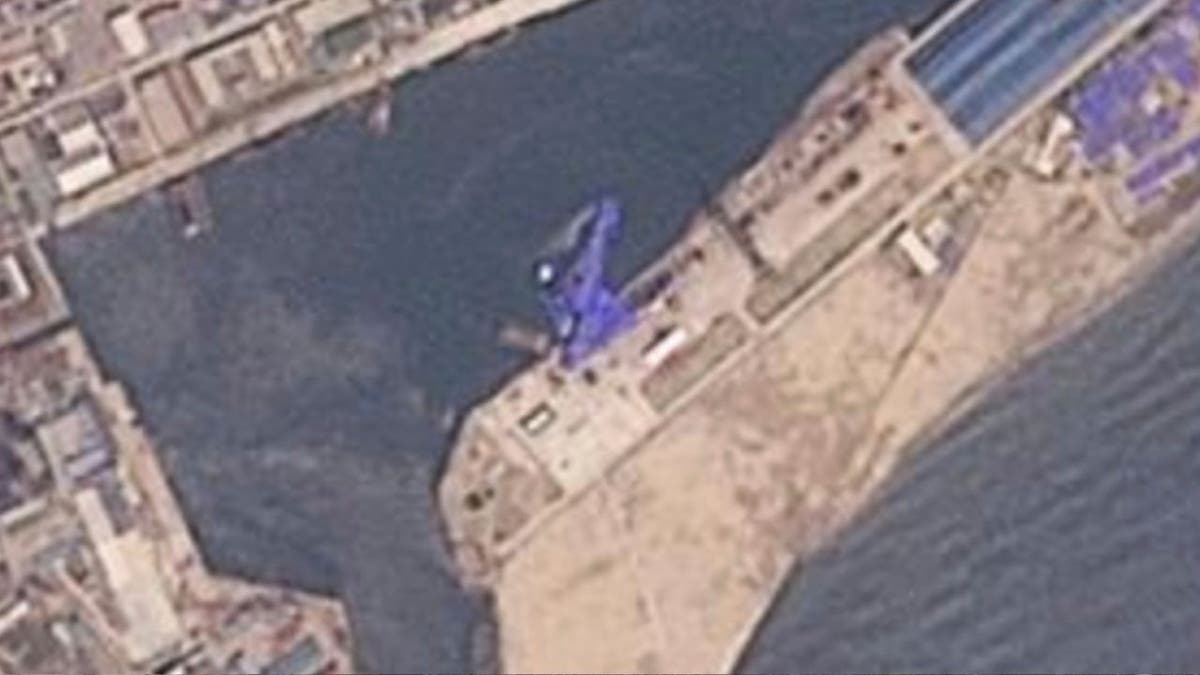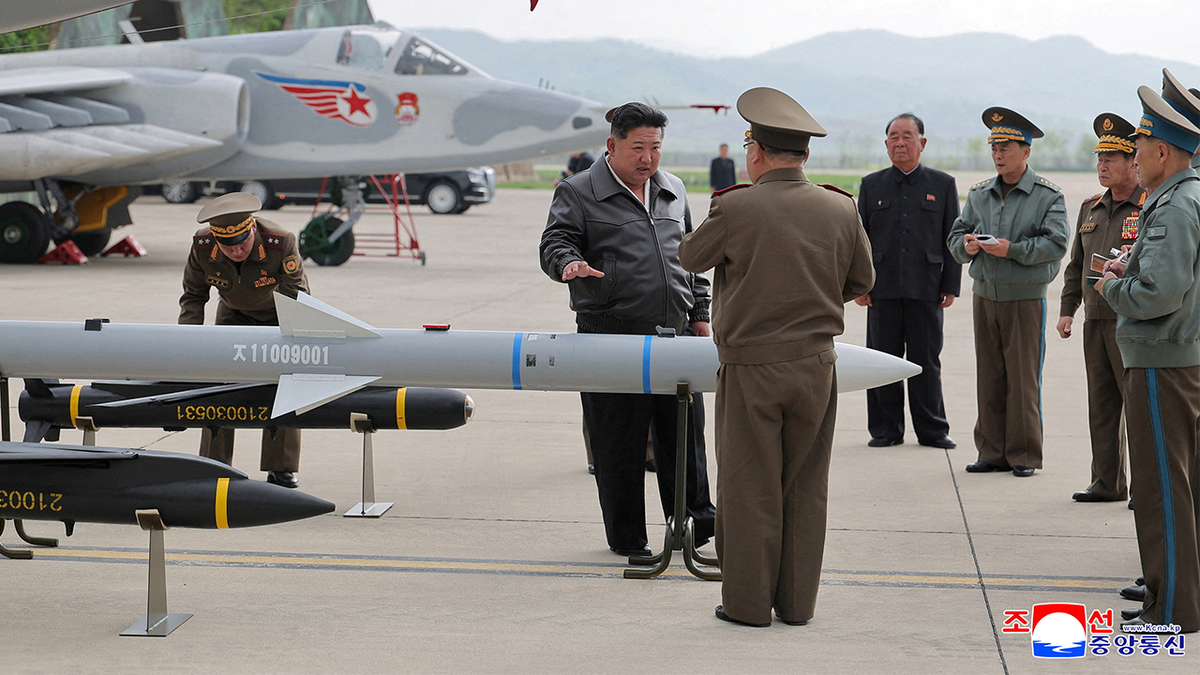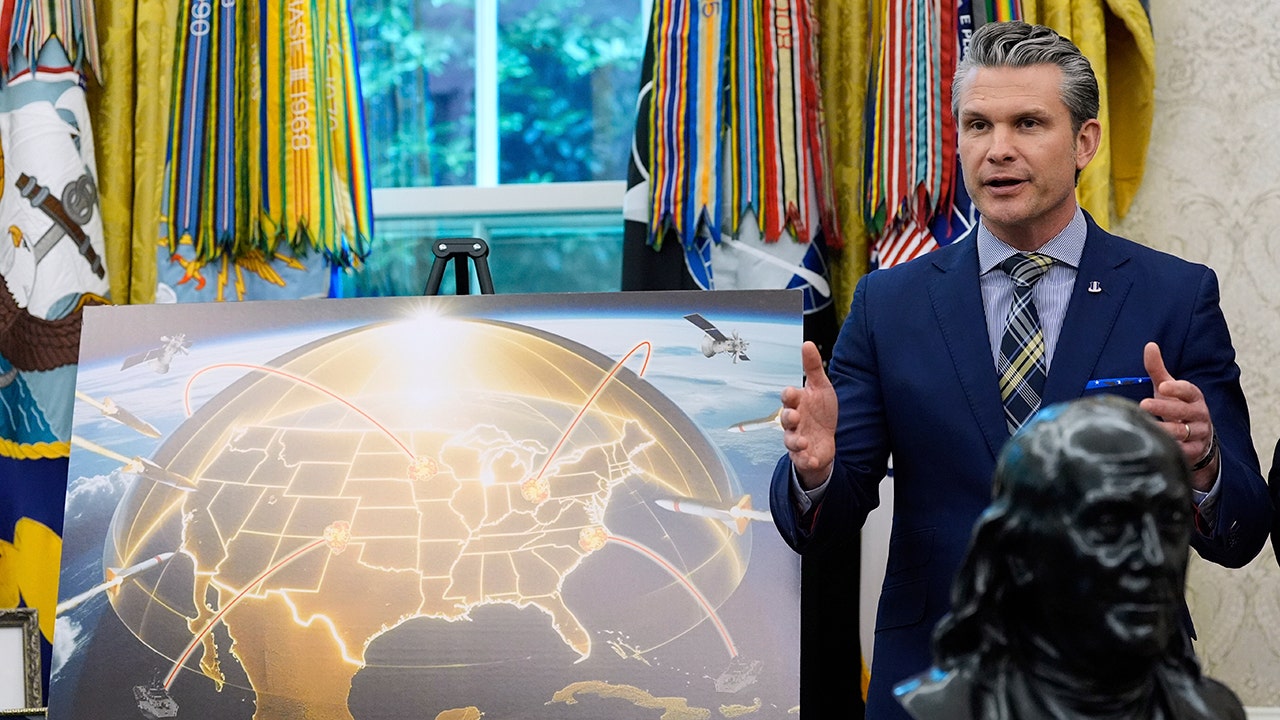World
German railway operator Deutsche Bahn launches effort to sell logistics unit Schenker

BERLIN (AP) — Germany’s main national railway operator, Deutsche Bahn, on Tuesday launched an effort to sell its logistics unit, DB Schenker, as the company seeks to concentrate on its core business at home.
Schenker has about 76,600 employees in more than 130 countries and for years generated high profits, helping push Deutsche Bahn into the black. The state-owned parent company describes it as one of the world’s top four logistics firms.
Deutsche Bahn issued an announcement that it’s considering selling “the entire share capital of Schenker AG in an open, transparent and nondiscriminatory process” and called for potential bidders to indicate their interest by Jan. 15.
The company said that it would retain all proceeds from a sale, which would go in large part to reducing debt, and that disposing of Schenker would “significantly accelerate” its focus on its core business. It already has sold several business units outside Germany, including European public transport subsidiary Arriva.
German authorities are keen for Deutsche Bahn to focus on improving service at home, where the railway has struggled with growing reliability issues in recent years and needs significant investment.
The company said that a sale would also be good for Schenker itself.
“DB Schenker has contributed very positively to the DB Group’s economic growth over the years,” the company said in a statement. “However, the DB subsidiary will need more capital and flexibility for its own growth.”

World
Ukrainian official says major prisoner swap with Russia is underway
WASHINGTON (AP) — An exchange of prisoners between Russia and Ukraine from their more than three-year war was underway Friday, a senior Ukrainian official said.
The swap had not yet finished, according to the official, who spoke on condition of anonymity because he was not authorized to speak publicly.
Moscow did not immediately confirm the exchange was underway.
The Ukrainian comment came after U.S. President Donald Trump said Russia and Ukraine had carried out a large exchange of prisoners.
“A major prisoners swap was just completed between Russia and Ukraine,” Trump said on the Truth Social platform. He said it would “go into effect shortly,” although it was not clear what that meant.
“This could lead to something big???” Trump added in his post, apparently referring to international diplomatic efforts to stop the fighting.
White House and National Security Council officials did not immediately respond to requests for further details.
The exchange was agreed last week in the first direct Russia-Ukraine peace talks since the early weeks of Moscow’s 2022 invasion of its neighbor. That meeting in Turkey lasted just two hours and brought no breakthrough in international diplomatic efforts to stop the fighting.
___
Follow AP’s coverage of the war in Ukraine at https://apnews.com/hub/russia-ukraine
World
Kim Jong Un left fuming after North Korea's new destroyer damaged in failed launch

North Korean dictator Kim Jung Un was left fuming this week when he attended the botched launch of a new 5,000-ton naval destroyer.
The launch, at the northeastern port of Chongjin, was intended to tout the communist nation’s military advancement, but ended in embarrassment for Kim after the ship slid off a ramp and became stuck, state media reported.
The flatcar failed to move alongside the ship, throwing it off balance and crushing parts of the ship’s bottom, North Korean news agency KCNA reported. Its stern slid down the launch slipway, while its bow section failed to leave the ramp.
North Korean dictator Kim Jung Un was left fuming this week when he attended a botched launch of a new 5,000-ton naval destroyer. (Contributor/Getty Images | Korean Central News Agency/Korea News Service via AP)
KIM JONG UN SUPERVISES NORTH KOREA’S AIR DRILLS, PUSHES FOR ENHANCED WAR PREPARATION
The total extent of the damage was unclear and it isn’t known if there were any injuries.
North Korea did not release photos from the scene, although satellite imagery released by South Korea on Thursday indicated that the ship was lying on its side in the water after the failed launch.
According to KCNA, Kim, who was present at the ceremony on Wednesday, blamed military officials, scientists and shipyard operators for a “serious accident and criminal act caused by absolute carelessness, irresponsibility and unscientific empiricism.”
Kim warned that the errors caused by the “irresponsibility of the relevant officials” would need to be investigated at a ruling Workers’ Party meeting slated for late June.
He said that restoring the destroyer before the meeting was directly related to the prestige of the state and the restoration should be completed unconditionally.

This satellite image from Planet Labs PBC shows a blue tarp covering a North Korean destroyer after it suffered a failed launch while it was being put to sea in Chongjin, North Korea, on Thursday. (Planet Labs PBC via AP)
Moon Keun-sik, a navy expert who teaches at Seoul’s Hanyang University, said that despite the embarrassment, Kim still wanted to publicly report on the mishap.
“It’s a shameful thing, but the reason why North Korea disclosed the incident is it wants to show it’s speeding up the modernization of its navy forces and expresses its confidence that it can eventually build,” he told The Associated Press.
Moon suspected that the incident likely happened because North Korean workers aren’t yet familiar with such a large warship and had been rushed to put it in the water.
It was the second naval destroyer the secretive nation launched in a month after Kim attended the successful launch of another 5,000-ton destroyer from Nampo, a port on the west coast of North Korea. Kim later watched missiles fired from the ship, with experts saying that it appeared to have been built with Russian technology.
Experts said that both ships are likely designed to carry weapons systems including nuclear-capable ballistic and cruise missiles.
600 NORTH KOREAN TROOPS KILLED WHILE FIGHTING UKRAINE, SOUTH KOREA SAYS
A report by the North Korea-focused 38 North website assessed last week that the destroyer in Chongjin was being prepared to be launched sideways from the quay, a method that has rarely been used in North Korea. The report said the destroyer launched in Nampo, in contrast, used a floating dry dock.

North Korean leader Kim Jong Un talks to military members as he inspects projectiles during a visit to an airfield in this photo released by the Korean Central News Agency on Friday. (KCNA via Reuters)
Kim has framed the arms buildup as a response to perceived threats from the U.S. and South Korea, which have been expanding joint military exercises in response to the North’s advancing nuclear program.
In March, Kim oversaw tests of newly developed AI-powered suicide drones and called for their increased production. He was seen walking with aides on what appeared to be an unmanned surveillance aircraft that resembled the U.S. RQ-4 Global Hawk high-altitude surveillance aircraft parked on the tarmac in the background.
Other images showed a fixed-wing drone zeroing in on a tank-shaped target then exploding in flames.
Kim has said that unmanned control and AI capability must be the top priorities in modern arms development.
Kim was also seen walking to a large aircraft with four engines and a radar dome mounted on the fuselage. Analysts have previously reported that North Korea was converting the Russian-made Il-76 cargo aircraft for an early-warning role to help augment the North’s existing land-based radar systems, which are sometimes limited by the peninsula’s mountainous terrain, London’s International Institute for Strategic Studies said in a report in September.

North Korean leader Kim Jong Un walks alongside officials in March while overseeing tests of newly developed AI-powered suicide drones. (KCNA via Reuters)
North Korea also revealed this year that it has a nuclear-powered submarine under construction, a weapons system that could pose a major security threat to South Korea and the U.S.
Meanwhile, North Korea has sent between 11,000 and 15,000 military personnel to fight alongside Russia in the war against Ukraine in its first involvement in a large-scale conflict since the 1950-53 Korean War.
The South Korean military assessed that around 4,700 of them have been killed or wounded.
The Associated Press and Reuters contributed to this report.
World
EU membership, seizing Russia’s money needed to rebuild Ukraine: Analysts

Ceasefire negotiations between Russia and Ukraine may soon be under way, but Ukraine’s economic recovery will be hobbled unless the European Union fast-tracks the war-torn country’s membership and provides hundreds of billions of euros’ worth of insurance and investment, experts tell Al Jazeera.
“I think what Ukraine needs is some kind of future where it will have a stable and defendable border, and that will only come, I would think, with EU membership,” historian Phillips O’Brien told Al Jazeera.
The US administration of President Donald Trump last month handed Ukraine and Russia a ceasefire proposal that excluded future NATO membership of Ukraine, satisfying a key Kremlin demand and leaving Ukraine without the security guarantees it seeks.
“What business is actually going to take the risk of getting involved there economically?” asked O’Brien. “With NATO off the table, I think if Ukraine is going to have a chance of rebuilding and being integrated into Europe, it will have to be through a fast-tracked EU membership.”
That membership is by no means assured, although the European Commission started negotiations in record time last June, and Ukraine has the support of EU heavyweights like France and Germany.
If Ukraine becomes an EU member, it would still face a devastated economy requiring vast investment.
The Kyiv School of Economics (KSE) estimated that between Russia’s full-scale invasion in February 2022 and November last year, Moscow’s onslaught had destroyed $170bn of infrastructure, with the housing, transport and energy sectors most affected.
That figure did not include the damage incurred in almost a decade of war in the eastern regions of Luhansk and Donetsk since 2014 or the loss of 29 percent of Ukraine’s gross domestic product (GDP) from the invasion in 2022. The estimate also did not put a value on the loss of almost a fifth of Ukraine’s territory, which Russia now occupies.
That territory contains almost half of Ukraine’s unexploited mineral wealth, worth an estimated $12.4 trillion, according to SecDev, a Canadian geopolitical risk firm.
It also does not include some types of reconstruction costs, such as chemical decontamination and mine-clearing.
The World Bank put the cost of infrastructure damages slightly higher this year, at $176bn, and predicts the cost of reconstruction and recovery at about $525bn over 10 years.
‘The Kremlin has certainly looted occupied territory’
Economic war has been part of Russia’s strategy since the invasion of Donetsk and Luhansk in 2014, argued Maximilian Hess, a risk analyst and Eurasia expert at the International Institute of Strategic Studies.
“The Kremlin has certainly looted occupied territory, including for coking coal, agricultural products, and iron,” Hess told Al Jazeera.
The KSE has estimated Russia stole half a million tonnes of grain, included in the $1.9bn damages bill to the agricultural sector.
Using long-range rocketry, Russia also targeted industrial hubs not under its control.
Ukraine inherited a series of factories from the Soviet Union, including the Kharkiv Tractor Plant, the Zaporizhia Automobile Plant, the Pivdenmash rocket manufacturer in Dnipro and massive steel plants.
“All were targeted by Russian forces,” wrote Hess in his recent book, Economic War. “Russia’s attacks were, of course, primarily aimed at devastating the Ukrainian economy and weakening its ability and will to fight, but they also raised the cost to the West of supporting Ukraine in the conflict, something the Kremlin hoped would lead to reduced support for Kyiv.”
Through occupation and targeting, Russia managed to deprive Ukraine of a flourishing metallurgy sector.
According to the United States Geological Survey, metallurgical production decreased by 66.5 percent as a result of the war.
That is a vast loss, considering that Ukraine once produced almost a third of the iron ore in Europe, Russia and Central Eurasia, half of the region’s manganese ore and a third of its titanium. It remains the only producer of uranium in Europe, an important resource in the continent’s quest for greater energy autonomy.
Ukraine’s claims to have built a $20bn defence industrial base with allied help, a rare wartime economic success story.
That can make up for the losses in metallurgy, Hess said, “but only in part and in different regions of the country from which those mining and metallurgical ones were concentrated. Boosting [metallurgical activities] in places like Kryvyi Rih, Dnipro, Zaporizhzhia, and ideally territory ultimately freed from Russian occupation, will be necessary to win the peace.”
Trump’s minerals deal, and other instruments
Weeks ago, Ukraine and the US signed a memorandum of intent to jointly exploit Ukraine’s mineral wealth.
Ukraine committed to putting half the proceeds from its metallurgical activities into a Reconstruction Fund, but experts doubted the notion that mineral wealth can rebuild Ukraine.
“Projects have a long launch period … from five to 10 years,” Maxim Fedoseienko, head of strategic projects at the KSE Institute, told Al Jazeera. “You need to make documentation, environmental impacts assessment, and after that, you can also need three years to build this mine.”
The US and EU might invest in such mines, Fedoseienko said, because “we have more than 24 kinds of materials from the EU list of critical [raw] materials,” but they would only contribute to the Ukrainian economy if investments were equitable.
Trump presented the minerals deal as payback for billions in military aid.
“There’s nothing remotely fair about it. The aid was not given to be paid back,” said O’Brien.
As Fedoseienko put it, “It is not fair if everyone will say, ‘OK, we will help you in a time of war, so you are owned [by] us.’”

In addition to fairness, Ukraine needs money. Some of that needs to come in the form of insurance.
A state-backed war-risk insurance formula Kyiv reached with the United Kingdom in 2023, for example, brought bulk carriers back to Ukraine’s ports and defeated Russian efforts to blockade Ukrainian grain exports.
As a result, Ukraine exported 57.5 million tonnes of agricultural goods in 2023-2024, and was on track to export 77 million tonnes in the 2024-2025 marketing year, which ends in June, its agriculture ministry said.
“There needs to be a substantial expansion of public insurance products in particular, as well as a move to seize frozen Russian assets,” said Hess.
Seizing some $300bn in Russian central bank money held in the EU was deemed controversial, but the measure is now receiving support.
“The Russian state has committed these war crimes, has broken international law, has done this damage to Ukraine – that actually becomes a just way of helping Ukraine rebuild,” said O’Brien. “[Europeans] have a very strong case for this, but they, right now, lack the political will to do it.”
Ukraine’s president, Volodymyr Zelenskyy, has already repeatedly asked Europe to use the money for Ukraine’s defence and reconstruction.
What Europeans have done in the meantime is going some way towards rebuilding Ukraine.
Some $300m in interest payments proceeding from Russian assets are diverted to reconstruction each year.
A European Commission programme provides 9.3 billion euros ($10.5bn) of financial support designed to leverage investment from the private sector.
Financial institutions such as the European Bank for Reconstruction and Development and the European Investment Bank are providing loan guarantees to Ukrainian banks, which gives them liquidity.
“So Ukrainian banks can provide loans to Ukrainian companies to invest and operate in Ukraine. This is a big ecosystem to finance investment and operational needs to the Ukrainian economy,” said Fedoseienko.
Together with the finance ministry, the KSE operates an online portal providing information about the various instruments available, which has already helped bring 165 investments to fruition worth $27bn.
“Is it enough to recover the Ukrainian economy?” Fedoseienko asked. “No, but this is a significant programme to support Ukraine now.”
-

 Culture1 week ago
Culture1 week agoBook Review: ‘Original Sin,’ by Jake Tapper and Alex Thompson
-

 Education1 week ago
Education1 week agoA $5 Billion Federal School Voucher Proposal Advances in Congress
-

 Technology1 week ago
Technology1 week agoLove, Death, and Robots keeps a good thing going in volume 4
-

 Education1 week ago
Education1 week agoVideo: Opinion | We Study Fascism, and We’re Leaving the U.S.
-

 News1 week ago
News1 week agoAs Harvard Battles Trump, Its President Will Take a 25% Pay Cut
-

 Technology1 week ago
Technology1 week agoMeta’s beef with the press flares at its antitrust trial
-

 News1 week ago
News1 week agoMenendez Brothers Resentenced to Life With Parole, Paving Way for Freedom
-

 Politics1 week ago
Politics1 week agoRepublicans say they're 'out of the loop' on Trump's $400M Qatari plane deal















